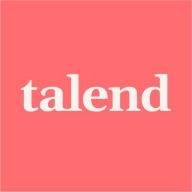

Workato and Talend Data Integration compete in the automation and data integration space. User reviews suggest Workato has the upper hand due to its intuitive low-code approach and rapid deployment capabilities.
Features: Workato provides a no-code platform with an extensive library of pre-built connectors, enabling rapid business process automation. It supports quick connectivity to apps and offers recipe-driven automation for rapid workflow creation. Talend Data Integration is known for its strong code generation, advanced transformation capabilities, and the use of Java integration. It provides efficient data transformation with components like TMap, making it robust for complex data pipelines.
Room for Improvement: Workato could enhance support for complex data transformations and improve API management. Users also suggest scalability improvements for large data volumes and a more accessible interface for non-technical users. Talend would benefit from a simpler user interface and better real-time processing capabilities. Improved documentation and enhanced connectivity to modern platforms are recommended.
Ease of Deployment and Customer Service: Workato is primarily deployed in public cloud environments and praised for ease of use and responsive customer service. Its deployment process is user-friendly and efficient. Talend Data Integration offers flexible deployment options, including private and hybrid cloud, tailored to varied business needs. However, its configuration complexities can be challenging. Both platforms have responsive customer service, with Workato receiving quicker support feedback.
Pricing and ROI: Workato uses a task-based pricing model, perceived as cost-effective due to its capabilities and fast ROI. Although it may appear more expensive than some iPaaS solutions, its pricing flexibility is noted by users. Talend Data Integration may seem initially costly but offers comprehensive features that justify the investment, particularly in complex data environments. Both solutions demonstrate positive ROI, but Workato's pricing flexibility is a potential differentiator.
It has helped us save a lot of time by automating repetitive data processes and reducing manual interventions.
They didn't want to use separate ETL tools for MDM or for TMC and data preparation, which is all included in one package.
By replacing multiple legacy systems and teams with a single automated platform, organizations see significant cost savings and improved business operations.
For main recipes, there are charges, so by focusing on creating as many callable recipes as possible based on requirements, we can improve cost efficiency for the business.
In my experience, we have seen a return on investment, with results visible within a week.
The support team is responsive when we raise issues, and they usually provide clear guidance or solutions.
The customer support for Talend Data Integration is very good; whenever I raise a ticket in the customer portal, I immediately receive an email, and follow-up communication is prompt.
Whenever we faced issues with data volume, the support team helped us by suggesting solutions like breaking the data into chunks.
I reach out to the professional services team or customer success team for technical support, and they provide immediate responses.
Workato's support is robust, featuring first and second-level support.
By using features like job parallelization and modular design, we can expand our data flows without having to rebuild everything.
The scalability of Talend Data Integration is good; if it weren't scalable, it wouldn't be reliable.
There are scalability limitations with Workato.
Allows dynamic connection switching at runtime.
Even when clients overutilize the product, Workato allows them to continue without interruption, charging accordingly rather than limiting usage.
Once the jobs are properly designed and deployed, they run reliably without major issues.
Once deployed, solutions do not break, making it more reliable than other solutions like Microsoft Power Automate that often disconnect.
During the initial data loads with large volumes, Workato was unable to handle the data effectively, which indicates stability issues under high loads.
To handle more than 50,000 records, I use scripting actions like Python or JavaScript to process large data in chunks.
It would be great to have more ready-to-use connectors for modern cloud and SaaS platforms.
Talend Data Integration can be improved by reducing the license cost, as it is a bit high compared to other tools, which can be a burden for small-scale companies wanting to buy a license.
Regarding ETL, Talend Data Integration is great, but concerning real-time data processing, people are not really sure about Talend Data Integration or might not know how it provides such types of flexibilities.
The team is actively working on customizing the platform per client requirements and is rapidly releasing features to address these limitations.
Workato struggles with scalability when handling high volumes of data, such as terabytes, requiring chunking for initial data loads.
One area for improvement is the CI/CD pipeline, which lacks a version control system similar to GitHub for easier deployment.
My experience with Talend Data Integration's pricing, setup cost, and licensing is that it is a bit higher compared to other tools, making it not very affordable.
Higher volume is less expensive, but in general, it is kind of pricey.
While the upfront cost is high due to task-based pricing, the cost is relatively low in terms of development because Workato provides necessary connectors for integration use cases.
Compared to other iPaaS solutions like Boomi, Workato’s pricing model charges per connection step, which increases the cost.
By automating daily data loading processes, we reduced manual effort by around three or four hours per day, which saved roughly 60 to 80 hours per month.
Flexibility is a key feature I appreciate about Talend Data Integration, especially the integration of Java within it and the ease of integrating with multiple source repositories such as GitHub and Bitbucket.
The best feature of Talend Data Integration is its multiple data DB components; we have almost all the components and also cloud versions, with TMC allowing us to perform data preparation and data stewardship.
It allows app-to-app and real-time integrations, which significantly enhance process efficiency.
It comes with pre-built connectors, eliminating the need to write APIs.
The platform's ease of use for connecting to different integrations, like Salesforce and NetSuite, is very beneficial because development isn't necessary, and everything is readily available.
| Product | Market Share (%) |
|---|---|
| Workato | 5.6% |
| Talend Data Integration | 1.5% |
| Other | 92.9% |


| Company Size | Count |
|---|---|
| Small Business | 2 |
| Midsize Enterprise | 2 |
| Large Enterprise | 4 |
| Company Size | Count |
|---|---|
| Small Business | 7 |
| Midsize Enterprise | 6 |
| Large Enterprise | 7 |
Talend Data Integration efficiently handles data transformation and integration with ease, supporting complex business needs. It enables seamless data management across all sources.
Talend Data Integration offers a robust platform for managing and transforming data. It connects disparate systems, enabling data flow across various environments. Users benefit from its ability to streamline processes and improve data accuracy. Its user-friendly interface and flexibility make it a preferred choice for data integration experts.
What are the key features of Talend Data Integration?In finance, Talend Data Integration enhances transaction data processing and compliance reporting. In healthcare, it ensures accurate patient data management, while in retail, it optimizes inventory and customer data analysis. Its adaptability makes it valuable across multiple sectors, addressing specific industry requirements.
Named a Leader in iPaaS for Dynamic Integrations by Forrester, Workato is a modern automation and integration platform. With its enterprise-grade capabilities, you can seamlessly integrate and orchestrate workflow automation across cloud and on-premise applications, files and databases without coding.
The Workato team comes from a deep background in building integration products and will continue to expand and change the automation and integration space.
We monitor all Integration Platform as a Service (iPaaS) reviews to prevent fraudulent reviews and keep review quality high. We do not post reviews by company employees or direct competitors. We validate each review for authenticity via cross-reference with LinkedIn, and personal follow-up with the reviewer when necessary.